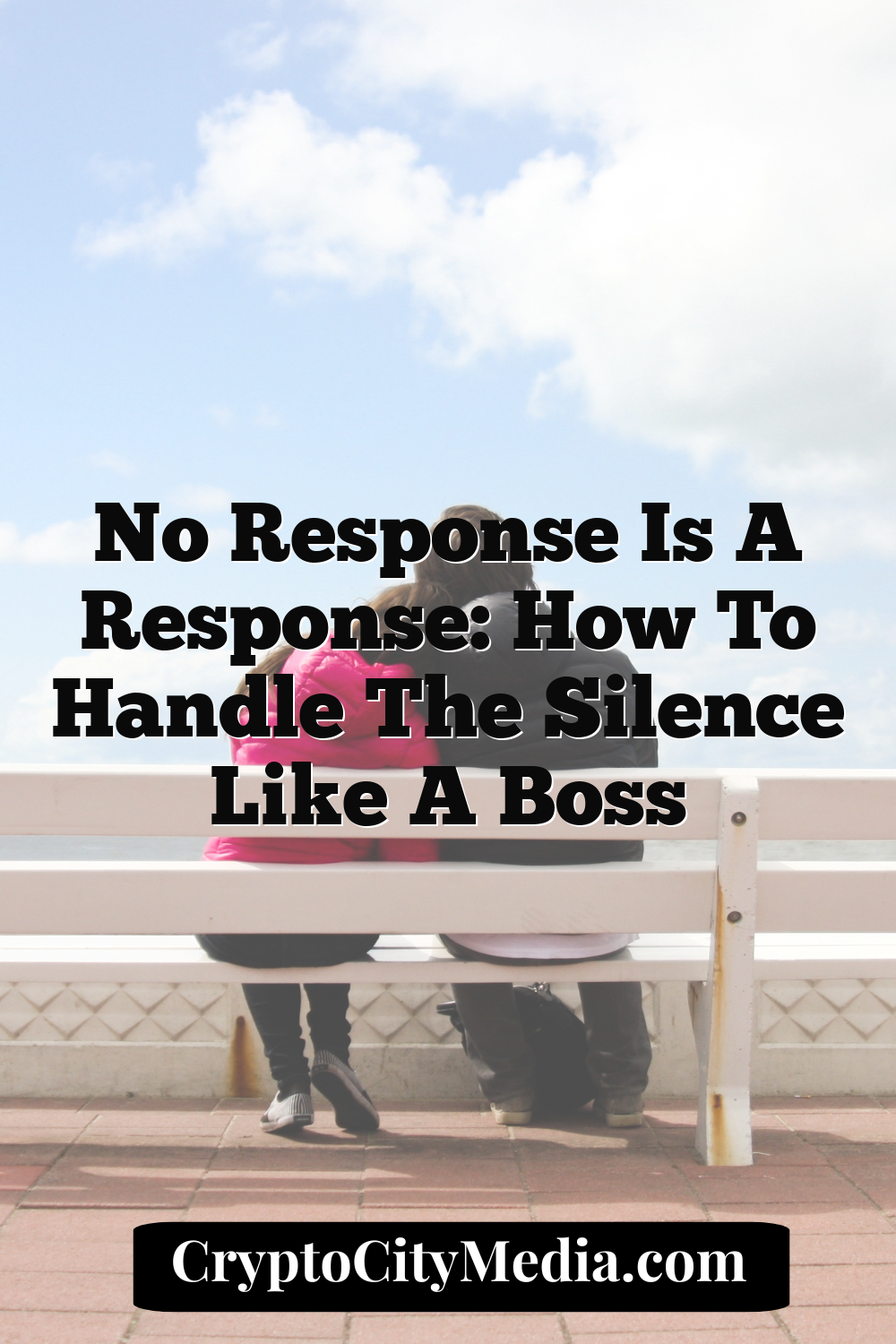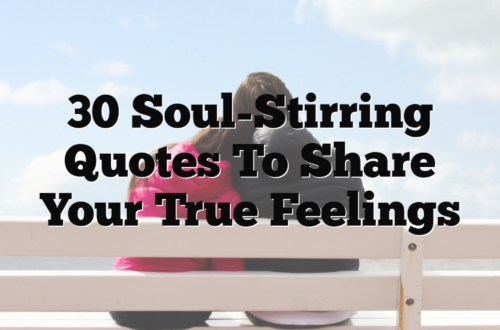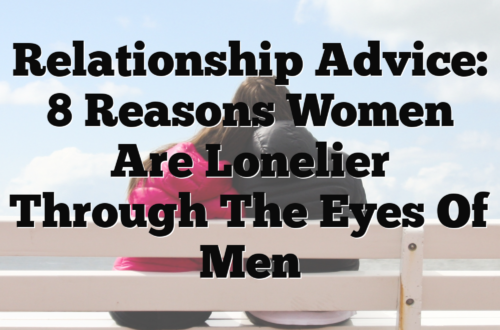
No response is a response.
And it’s a strong one because most people are uncomfortable with silence.
Silence during first dates. Silence after a breakup. Silence after an interviewer asks you a question. The silence when you text an old flame after years of no contact.
All of them are uncomfortable for us. Why is that?
It’s as if silence is loud even though it’s the quietest.
The worst thing to deal with in interaction is when you get no response from a question you want its answer or feedback from someone that matters.
But if you understand why no response is a response, when to use silence to get what you want, and how to deal with someone who doesn’t respond to you, you will be comfortable with silence in both scenarios.
Why No Response Is a Response
1. No Response Triggers Others to Act
The simplest thing you can ever do is not to respond.
All you have to do is.. nothing.
This may be simple, but it’s easier said than done.
People are compelled to respond when they’re dealing with someone they care about or someone who’s superior to them at work.
There are times when you have to respond to not be too rude or impolite, but sometimes you need to not respond to make a point.
Sometimes we react hastily to situations we didn’t want to be in and then regret it later. We make promises we can’t keep or commitments we don’t want to have, and all it would’ve taken to avoid such a situation is not to respond.
If you ever find yourself in an uncomfortable position frequently because you’re guilty to avoid it, then perhaps you feel obligated to respond when you don’t need to and that’s why you keep tying yourself up with these complications.
Maybe if you didn’t react, someone else will and that might be a good thing depending on the situation.
Once you don’t react, your lack of response becomes a response because you’re letting others know that they also have to put in their share of work and that you’re not always going to cover them.
2. No Response is a Response from a Position of Power
No response is a powerful response when used correctly.
People who have options don’t beg and plead for one of their many options to give them what they want.
To capable people with possibilities, if an option doesn’t work, it doesn’t get more attention or scrutiny for not working; it’s simply avoided for the next best option.
This is how powerful and attractive people who know their worth behave.
People who don’t entertain BS from others because they know they are too good for this simply don’t respond.
Because they know that by simply responding, they are giving the BSer their attention.
By giving a BSer their attention, they make the BSer feel more important and his BS more credible.
Whenever you respond emotionally to someone who doesn’t deserve a response, you immediately stoop to their level and let them know what they think is valid to an extent.
But if you don’t respond, your powerful silence shows them that whatever they said is too silly that it doesn’t warrant a response.
Now it becomes on them to make the whole interaction better, should they want to do so.
Through silence, you show that you have standards for your attention and that you only reply to those who meet your standards.
No response is a response that demands respect.
3. No Response Makes People Think Twice
Silence makes people doubt their actions, revisit their texts, and think twice about what they’ve said on the phone.
Whenever someone says something to you that’s clearly untrue or insulting, try not replying back.
This might be difficult to do because sometimes you’d want to explain yourself or mention why someone’s statement is a lie or disrespectful, but there is a more effective way to reply to such situations, and that’s by not responding at all.
When you don’t say anything back for a while, whoever wronged you will be forced to think about what they did and said, which is exactly what you need them to do if there’s any chance for them to keep dealing with you.
Silence is one of the best ways to correct bad behavior.
Now they may either choose to apologize or they might notice that you haven’t gotten triggered yet to stoop to their level, and this might lead to them doubling down on their disrespect, depending on how immature they are.
In such cases, you must stand your ground and not budge.
People should know that disrespect in any way never works with you, no matter how hard they try to trigger you.
Once they’ve realized that disrespecting you only gets you ignoring them, they’ll be less likely to mistreat you again.
Always remove your attention to set things straight.
4. No Response Stops You From Making Mistakes & De-escalates
Whenever you make a mistake and panic, you’re more likely going to make mistakes if you don’t stop and think before acting again.
Sometimes we react to conflicts or problems emotionally, respond a little too eagerly, and then wonder why we’ve escalated the situation when it wasn’t necessary.
It’s always better to think before we speak and slow down when tensions run high.
We most often say things we don’t mean because we had the sudden urge to respond when we shouldn’t have.
It’s also when we’re emotionally invested is when we promise to commit to things we never really wanted to commit to.
So when you have this sudden strong urge to respond, whether the urge was positive or negative, make sure you don’t act on that urge when replying.
Make sure you leave some room for silence so that it creates an opportunity for tensions to cool off and conflicts to de-escalate.
By giving no responses, sometimes we make room for others to also think about their differences with you instead of going back and forth again for no actual reason.
5. No Response Stops You From Investing
The more we act and speak, the more we invest.
The more we invest, the harder it is to stop investing.
Nobody with healthy self-esteem goes from 0 to 100 when it comes to getting attached to something or someone.
That’s why you must always keep yourself in check when dealing with people who don’t contribute to your life positively. They must always be met with silence regularly until they add value to you.
Because if you were to respond, you risk getting emotionally invested in a situation you don’t want to be in — investments that can be good or bad.
You have to move intelligently and only place your attention where it matters.
The moment you stop giving away your attention, you let people know that you’re no longer investing in them.
Your no response becomes a response once you deprive them of the very thing they’ve been accustomed to having on a regular basis — your presence.
When Should You Not Respond & Let Silence Speak for You
1. When Someone Makes a Stupid Mistake
If someone does something stupid, tell them directly so they don’t make the same mistake again.
In most cases when the mistakes aren’t that bad, silence isn’t the best to handle them.
It’s best to communicate what the other person has said or done so they know that they did something wrong and know that you don’t appreciate that mistake.
Because some people are quick to go silent and leave the other person confused, not even knowing why they’re upset. That person might not even know they’re upset.
But if someone has clearly wronged you and they did something unforgivable, then no response to the next thing they say might make more sense.
You shouldn’t sit there and explain why cheating on you after being in an exclusive relationship for 12 years with you is bad, for example.
And if someone repeats a mistake you’ve already discussed before and they already know you don’t tolerate that, then no response is a good way to punish someone for bad and intentional behavior.
2. When You’re Acting Emotional
Whenever you start getting angry, upset, or too frustrated, the best thing to do is not to reply immediately.
Cool off, first.
We do the silliest things and say the harshest words out of rage, and some words cannot be forgotten or ignored once they’re out there.
Never react when you’re angry — there are always better ways to communicate your disapproval.
In fact, sometimes responding when you’re calm, cool, and collected can be more effective and respectable than reacting out of emotions.
People can blame you for throwing a tantrum — they might use your anger against you, even if you had a point in reacting that way, they will disregard what you say and highlight how you said it.
But if you let them know you’re not letting whatever they said or did slide in a strict but calm manner, you don’t give them more reasons to blame you because of how you responded.
Now their only option is responding to your argument.
So whenever you get pissed off, don’t respond, until you are able to intelligently respond.
3. When You Don’t Want to be Available
You don’t always have to be available to people when you don’t want to, especially if they’re not available for you.
Sometimes people just wander off and get distant for some or no reason, and unless they’ve talked to you about a problem they have, there should be no reason for you to be available for them when they haven’t been consistently there for you.
There are also other times when you deal with people you just have no interest in talking to. You could go about it the mature way and let them know you’re not interested, or if talking to them isn’t feasible or they weren’t respectful towards you, then no response might be your best option.
The point is: Depending on the situation, you don’t always need a valid reason to not reply back.
You don’t owe anyone your attention just because they’ve asked for it.
How to Handle No Response Like a Boss
1. Don’t React Emotionally
When someone doesn’t respond to you, your first thought will be checking the last thing you’ve said or done.
This might not be a bad thing — you might have made a mistake.
But what if you’re sure you haven’t done anything wrong?
Then silence should be met with silence.
Your first inclination, especially if you’re getting no response from someone you care about, is to feel bad about it.
Now, there is nothing necessarily wrong with being agitated or discontent about being met with silence, but it shouldn’t push you to react.
You can get annoyed by the silence, but you’re 100% in control of how you respond.
Never think that someone made you react in a way you normally don’t. Nobody’s silence should have this kind of power over you.
All you have to do is to sit back and choose not to react.
Then they’ll understand that going no contact or not responding to you doesn’t benefit them in any sense — if anything, they might realize that this tactic can hurt their chances to be close to you, which is exactly what you’d like them to think.
2. Don’t Double Text or Repeat Yourself
Double-texting or repeating yourself is an act of weakness.
If you’re a guy double-texting a chick because she didn’t respond to you the first time, she’ll lose more respect for you.
And if she’s losing respect for you, she will lose attraction for you. That’s if she had any for you, to begin with.
The same thing applies to women.
Double-texting shows the other person that you’re too invested in them and that you might be clingy.
For others, this urge to want a response despite already getting a reply in the form of silence, which means “I’m not interested but lazy to respond” by the way, is a red flag.
Anyone with some self-respect will not have to repeat themselves. The normal thing to do here is just let them go.
Intentional silence is best met with silence.
3. Move On to Another Option If Possible
The quickest way to get over someone not responding to you is to find another option.
It’s easy to deal with Sally not responding to you when you have a better connection with Stacey.
Stacey wants to talk to you and make you happy, Sally doesn’t.
You might get a bit frustrated because that’s what we do, we focus on the negatives more than the positives.
But that’s also why you shouldn’t have invested your time and energy in a connection with Sally unless she has consistently proven herself to be someone worth talking to regularly, in the first place.
If you’ve invested correctly, you would have realized that Sally wasn’t worth all that attention.
Instead and if you were smart, you would have continued exploring options even when you met Sally — Stacey would have been someone you’ve been talking to all along.
So when Sally goes, cool, there’s Stacey.
And hopefully Samantha and Joanna.
You’re only as good as your options, so know when to take someone seriously after they have dedicated their time for you and when to keep it pushing.
4. Don’t Take A Silent Rejection Seriously
Most people take silence as a rejection and make a big deal out of it.
When someone doesn’t reply back because they’re uninterested, they’re normally not trying to make it a point to hurt you — oftentimes it’s nothing personal, especially when you haven’t been talking to them for long.
And honestly, even if it was someone you’ve talked to you for a while but ghosted you, you shouldn’t take it personally either.
Maybe they’ve gotten into a new relationship. Maybe they were already in one. Maybe they’re dealing with a serious problem and come back to you later.
And maybe they just don’t want to talk anymore.
I know this seems strange, but your opinion of yourself should be so high that you don’t really care why they don’t respond to you.
If you’re a great person and can find someone else even better than them to deal with, then you will do so without dwelling and looking back
You’d believe that if you’re awesome, it’s their loss.
If you’re not awesome, then forget about them entirely because you got bigger problems — you’ve got some personal development to do.
Come back when you think absolutely amazing.
Know Your Worth
You can’t control how people act but you can always control your reaction.
You can’t always avoid someone disrespecting you the first time, but you can always prevent them from ever doing so again.
No response is a response that corrects bad behavior and distances you from further harm.
But you need to truly believe that you must be dealt with respect at all times for no response to fully work in your favor.
High standards and strong boundaries. At all times.




